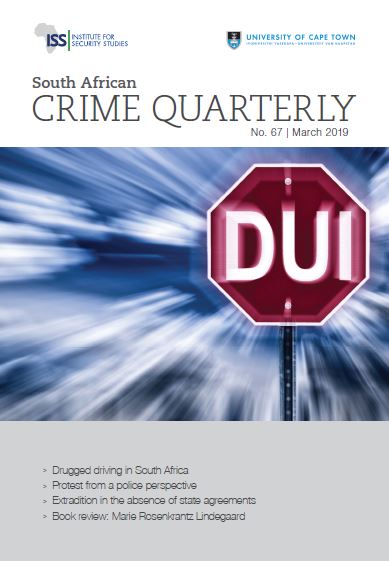Drugged driving in South Africa: An urgent need for review and reform
DOI:
https://doi.org/10.17159/2413-3108/2019/i67a4951Abstract
Driving under the influence is a major threat to road safety in South Africa. Various psychoactive substances (both licit and illicit) have the potential to adversely affect driving performance and increase the probability of a road traffic accident. While it is common practice in South Africa to test drivers for alcohol levels, testing for additional impairing substances (including drugs of abuse) is rarely performed. In terms of current South African legislation, only driving under the influence of alcohol and a ‘drug having a “narcotic” effect’ is prohibited. This excludes several impairing psychoactive drugs which are not classified as narcotic substances. The aim of this article is to highlight issues and/or limitations surrounding drugged driving and to propose appropriate considerations for revision of the National Road Traffic Act. We also recommend revising existing legislation to include a comprehensive statutory definition and detailed provisions for drug testing to deter impaired driving.
Downloads
Downloads
Published
Issue
Section
License
Copyright (c) 2019 Author and Institute for Security Studies/UCT

This work is licensed under a Creative Commons Attribution 4.0 International License.
SACQ is licenced under a creative commons licence (CC BY) that allows others to distribute, remix, tweak, and build upon your work, even commercially, as long a they give appropriate credit, provide a link to the license, and indicate if changes were made. They may do so in any reasonable manner, but not in any way that suggests the licensor endorses you or your use.
Copyright for articles published is vested equally between the author/s, the Institute for Security Studies and the Centre of Criminology (UCT).




.png)